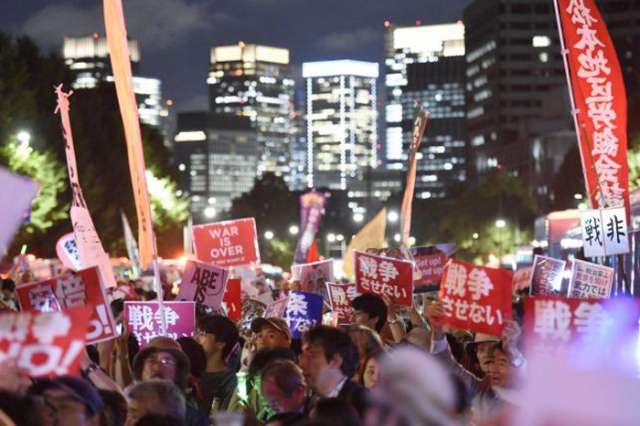Some in Japan worry that the gap between what Japan can or will do and what the United States hopes for could cause friction with Washington if a failure to meet overblown expectations means it becomes disillusioned with its Asian partner.
"With these legal changes, we will be able to do almost everything the United States has asked. There is almost nothing we cannot do when it comes to things like providing ammunition and rear-guard support," a Japanese naval officer told Reuters.
"But what America really wants is for Japan to fight in the war against terrorism," he added. "If U.S. public opinion rises against Japan, this will be a problem."
Despite public protests and surveys showing a majority of voters object, parliament`s upper house is expected as early as this week to enact defense bills Prime Minister Shinzo Abe has called "the first of its kind and a sweeping" reform.
The changes include an end to a decades-old ban on defending a friendly nation under attack, or collective self-defense, when Japan faces a "threat to its survival".
They also expand scope for logistics support for U.S. and other countries` militaries and participation in multinational peacekeeping operations.
The United States has welcomed the shift, while China, where anger over Japan`s brutal occupation before and during World War Two is still deep, has said the legislation would "complicate" regional security.
More about:















































